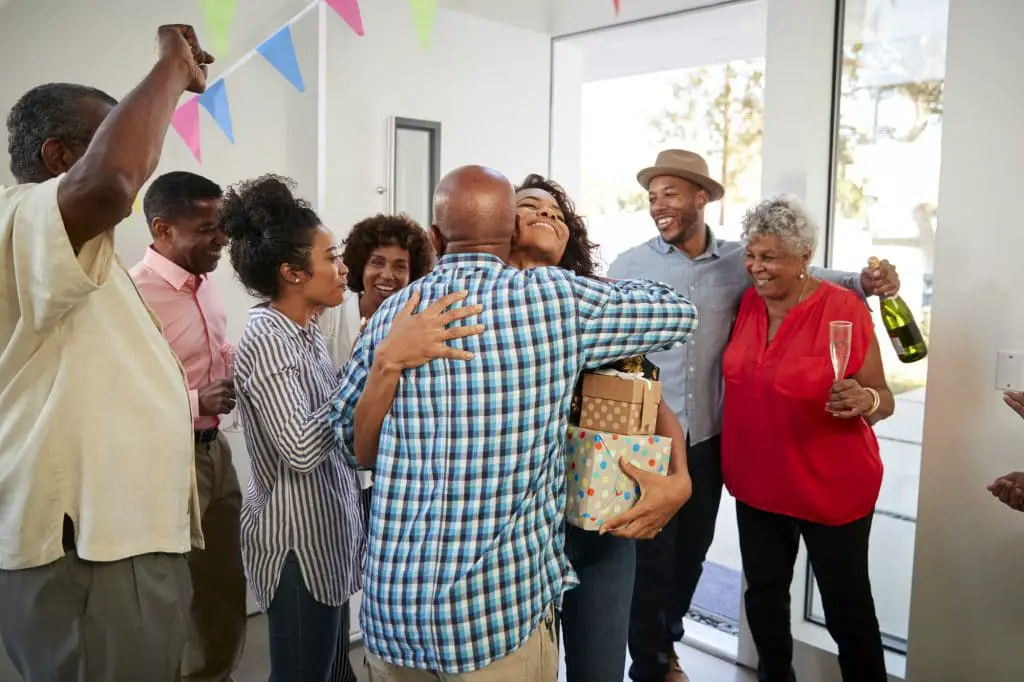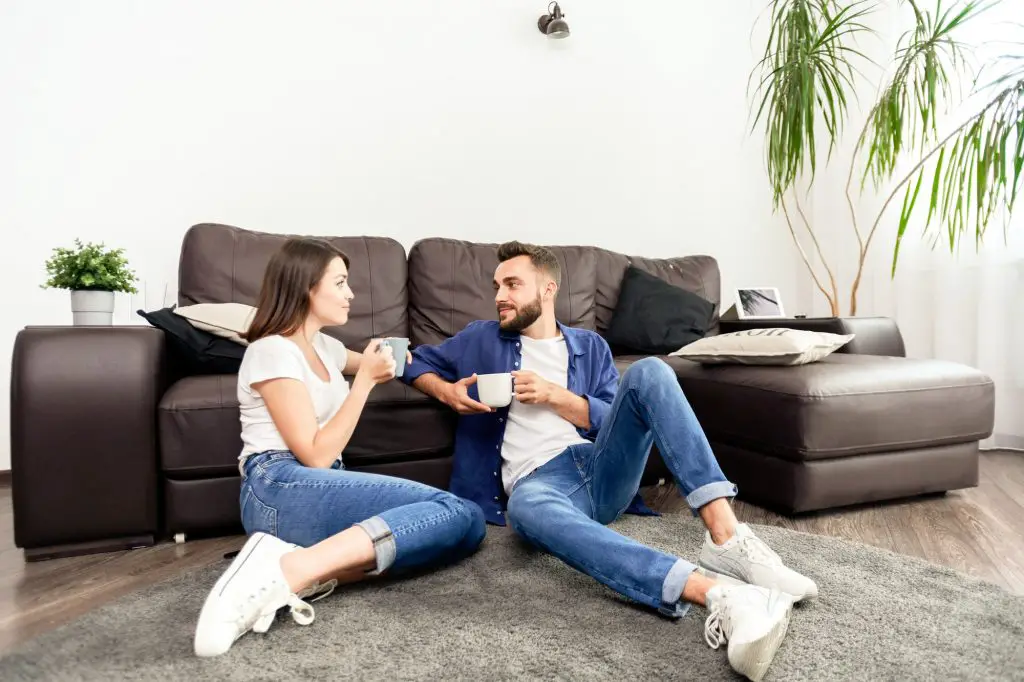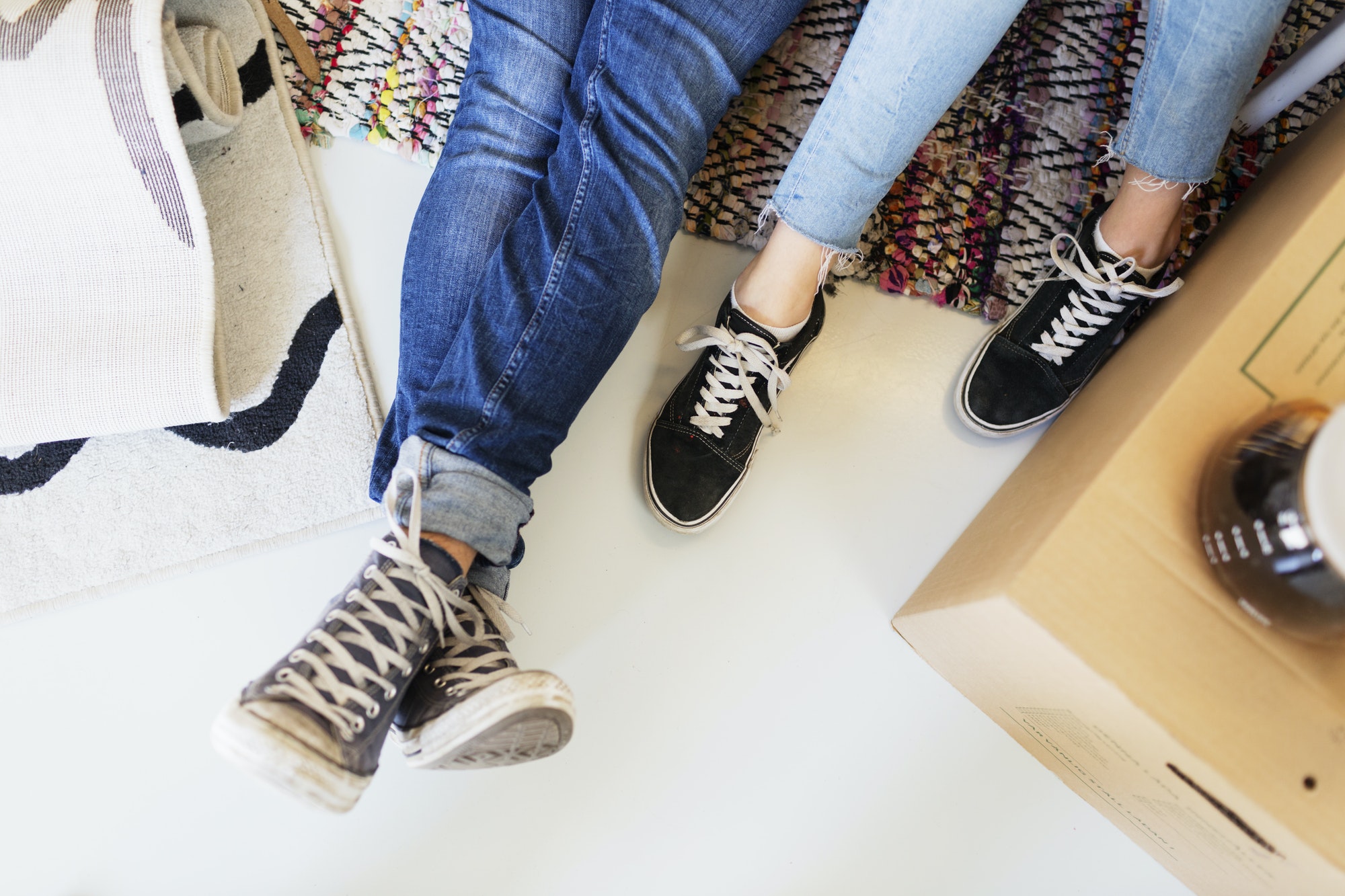If you grew up in a staunchly no-shoes household, you have probably wondered at some point why other people insist on walking around in their shoes at home.
You should tie off your shoes in the house. Generally, people do not wear shoes in the house because they do not want to bring germs into their living area. Study shows that wearing shoes in your house can bring an overwhelming amount of bacteria and viruses.
If you are so used to wear shoes in your house, you can consider buying a pair of comfortable house shoes.
Some of the reasons why people wear shoes in the house can be cultural traditions, protecting feet from stepping on sharp toys or stubbing toes on furniture, preventing slips on hardwood floors and avoiding foot pain from conditions such as plantar fasciitis or embarrassment from odor or athlete’s foot.
Generally, these are the cultural differences:
- Westerners: Do wear shoes in the house
- Asians: Do not wear shoes in the house
Many Asian cultures are well-known for removing their shoes indoors, especially the Japanese culture. This tradition of cleanliness originated because Japanese people used to (and some still do) eat meals sitting on tatami mats and then rolled out a futon to sleep on the floor.
Thus, because they were quite close to the floor as they were eating and sleeping, they removed their shoes to prevent contamination.
Plus, tatami floors, which are woven from rice straw and grass straw, are fragile and not easy to clean, which makes socks or bare feet the best choice.
Additionally, the bathroom is usually considered the least clean room in the house regardless of the culture you are in, and Japanese people solve this problem by reserving another pair of shoes specifically for the bathroom that is to be left in that room when you finish.
Conversely, it is common in certain households in America for people to walk around in their outdoor shoes.
The reasons for this vary and are primarily based on speculation, but one of the most likely cultural reasons that this phenomenon is more prevalent in America is that the large boots traditionally worn in the southwestern region of the U.S. were rather difficult to put on and take off.
Traditional cowboy boots do not have laces, straps or buckles, which make them extremely time-consuming to remove without a tool such as a wooden or metal boot jack.
Additionally, people who live in that region of the United States are used to having to check for scorpions, snakes and dangerous spiders, which makes the prospect of keeping the boots on much more appealing.
Related: Top 10 Best Men’s House Shoes
Asking Your Guests to Take Off Shoes

While many people prefer their guests to feel as comfortable as possible, no matter what culture you are living in, it is not rude to politely ask guests to remove their shoes, as it is your home, and they should abide by your preferences. Shoes can stain carpets, and heels can ruin hardwood floors. Any guest should be understanding about helping you prevent damage to your home.
Related: Non Marking Shoes | What They Are And When to Wear Them
According to a poll of 1,000 Americans on Chron.com, two thirds were willing to take off their shoes at someone else’s house, whether by their own volition or at the request of the host.
If you enact this policy, make sure you have an organized and convenient place for your guests to leave their shoes by the door.
To help guests feel more comfortable if they are used to wearing shoes in the house, you could even offer them a pair of single-use slippers.
Related: Types of Slippers with Names and Pictures
Most importantly, if you are hosting a formal event and your guests’ outfits might include dress shoes that are part of their ensemble, maybe have the event outside if the weather permits or at another venue.
The Bottom of Your Shoes Are Full of Bacteria
Unfortunately for those who prefer to wear shoes in the house, the bottoms of your shoes are dirtier than most people care to think about.
“If you wear shoes for more than a month, 93 percent will have fecal bacteria on the bottom of them,” University of Arizona professor of microbiology and environmental sciences Dr. Charles Gerba told TODAY Home. “Shoes make microorganisms fairly mobile, and you’re tracking that all around (the house).”
Because most shoes have cracks on the bottoms, it is easy to pick up bacteria from things such as pet waste on the ground and splashes from a toilet on public restroom floors.
Bacteria such as E. coli can also hitch a ride on your shoes, and certain strains can make you ill with urinary tract infections or diarrhea, respiratory illness and pneumonia as well as other illnesses, according to the CDC.
All of this extra bacteria in the house especially becomes a problem if you have young children who are crawling on the ground and constantly putting things in their mouths.
Shoes can also pick up toxins such as lawn fertilizer or weed killer, as well as gasoline or antifreeze, which can be released into the air if you walk around in your home with your shoes on.
Furthermore, if you have allergies, not removing your shoes can track in mold and extra allergens such as pollen, which can aggravate respiratory conditions.
Carpeting and shoes also do not mix well. Mold and bacteria can multiply over time, and organisms survive longer in carpet.
A disturbing survey from BISSELL Homecare, Inc. found that three in five people (62 percent) do not always wipe their shoes before coming indoors, but 52 percent of the people surveyed would eat food that had fallen on the carpet—worse yet, 49 percent of the respondents said they would not think to disinfect a baby pacifier or bottle that had fallen on the carpet.
- One in five (20 percent) people said they abided by the “30-second rule” of not throwing away food that has been on the ground for less than that time.
- Approximately 47 percent of respondents would not think about cleaning a glass or mug after dropping it on carpet, and 35 percent would not clean a utensil.
- Approximately 57 percent of those surveyed left their shoes on while at home at least sometimes, and nearly 87 percent do not always ask visitors to take off their shoes before coming into their homes.
- Nearly 78 percent of those surveyed do not believe that odors result from dirt and bacteria brought into their homes from the bottoms of their shoes.
If you feel very strongly about wearing shoes in the house, it is a good idea to put them in the washing machine to reduce 99 percent of the bacteria they carry, or to use an antimicrobial doormat.
Another simple way to avoid the potential illnesses caused by wearing shoes in the house is to reserve a pair of shoes that is only for indoor use, such as slippers.
Related: Can You Wear Flip Flops While Doing This? 18 Examples
Why do People Wear Shoes in the House

Many people want guests to feel at home, so they allow them to keep their shoes on in their house if that is what they are used to. Another reason some people wear shoes in the house is that they believe that since germs are everywhere all the time, a few more will not hurt.
Additionally, many people do not realize how much bacteria is on their shoes and may just be trying to protect their feet from sharp little objects such as Legos that might be on their floor if they have small children.
Other people actually do it for their own safety—for example, if they are prone to slipping on hardwood floors or stubbing their toes on furniture.
Still more people wear shoes because of plantar fasciitis, which makes walking around barefoot more painful.
Others might be reluctant to remove their shoes in someone else’s house because they are self-conscious about issues such as foot odor or athlete’s foot.
Wearing shoes in the house is perfectly understandable for many reasons, but that is why it is important to get a pair of shoes that is specifically designated for indoor use only—unless you would like to constantly be vacuuming and mopping.
Lysol Laundry Sanitizer is a safe and effective way to clean and kill 99.9% of bacteria. Your shoes can get dirtier by the minute they’re worn, studies show. In addition, they can also contain fecal bacteria and cause diarrheal diseases.
How dirty are your shoes?
A study found that after wearing shoes for two weeks, 10 people tested positive for bacterial infection. The results indicate that the bacteria found in the shoes were concentrated in the outside. Since they have developed the custom of eating their meals on tatami mats instead of chairs, they have also developed the practice of sleeping on the floor.
Some of the bacteria found in these shoes can cause infections. Some of these include Klebsiella pneumoniae and Serratia ficaria. In response to a reader who asked if it’s fine to ask guests to take off their shoes, the experts at Architecture Digest said yes, but it’s also best to warn guests in advance.
Wearing shoes inside the house can be a risk to your health. According to a study, microbes can thrive on the outside surfaces of shoes. Aside from being used for hygiene, Chinese households also protect their floors and furniture by taking off their shoes. This helps minimize the risk of staining and tracking dirt particles.
Reasons Why You Should Take Shoes Off Inside the House
While there are perfectly valid reasons both for wearing shoes in the house and for not wearing them, there are several points to keep in mind no matter which side of the issue you align with:
- There are cultural differences and traditions that drive people to prefer not wearing shoes or wearing shoes in the house.
- It is not rude to ask guests to remove their shoes in your house, especially if you offer them single-use slippers, unless it is a formal event.
- Shoes will certainly track in bacteria, fecal matter, toxins and allergens that can make you sick.
- Many people do not wipe their shoes before coming inside, yet eat food that has fallen on the ground and do not disinfect utensils and pacifiers that touch the floor.
- Some people wear shoes in the house for safety reasons, such as preventing falls, or cannot go barefoot because of conditions such as plantar fasciitis, foot odor or athlete’s foot.
- Putting your shoes in the washing machine, using an antimicrobial doormat or setting aside a pair of shoes solely for indoor use are all excellent solutions if you prefer to wear shoes indoors.

Austin is the author of loveatfirstfit.com and a personal trainer with extensive knowledge in nutrition. Austin is passionate about helping others to find a suitable healthy lifestyle and feel good about themselves. Austin’s goal is to help people push their limits and achieve their physical performance.

